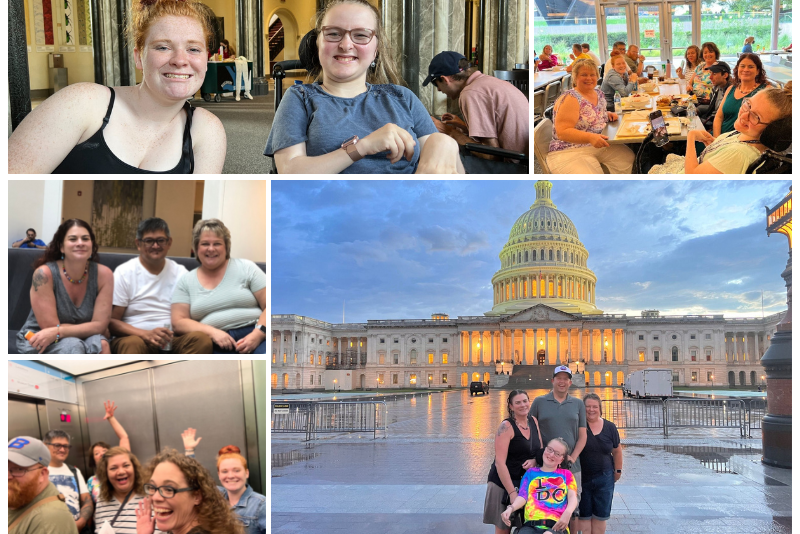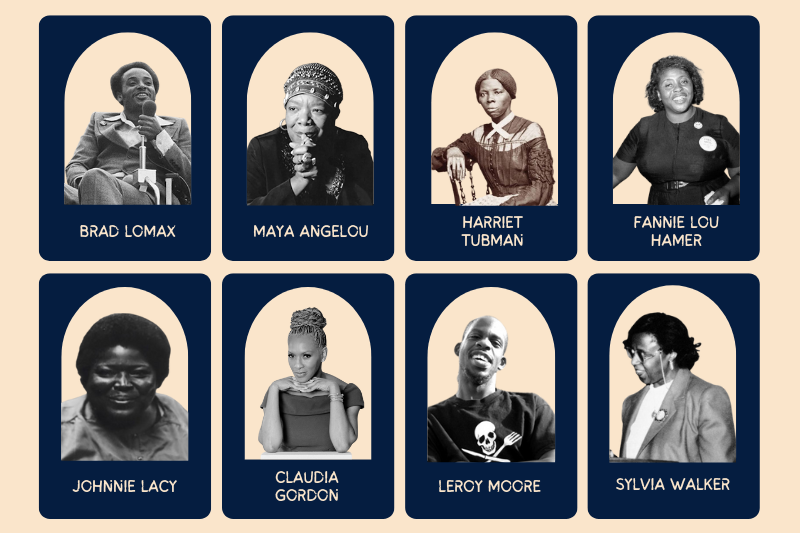White Pine High School senior Autumn Cavender says her teachers generally follow IEP guidelines, but for her (and presumably other IEP students), they need more individualized accommodations to help them succeed.
Autumn has been diagnosed with dyslexia and Irlen Syndrome, a problem with the brain’s ability to process visual information. Irlen Syndrome manifests differently for different people — in Autumn’s case, it causes light sensitivity which combined with dyslexia can make reading and processing information a big challenge.
As a freshman, Autumn thought about doing a training for teachers to better explain what IEP kids go through. That idea resurfaced after she attended the National Council for Independent Living’s (NCIL) “Forging Justice” annual conference in Washington D.C.
“If they don’t understand it’s not their fault,” she says. “If you don’t have what we have, you’re not going to understand. but we can explain how they can better support the students with advice on ways to help us.”
The Northern Nevada Contingent
Autumn was part of a group of Nevadans who traveled to the NCIL annual conference in Washington D.C. in July. Many of the group attended through scholarships from Northern Nevada Center for Independent Living (NNCIL) and Southern Nevada Center for Independent Living (SNCIL), using a grant from the Nevada Statewide Independent Living Council (SILC).
Members of the NNCIL group said the conference gave them deeper insight into living with disabilities and how to better help others.
Shelby Benzing, a senior at the Academy of Arts, Careers & Technology (AACT) High School, with plans to go into graphic design or computer science, says the conference opened her eyes and helped her realize that she is not alone.
“There is a problem out there and we need to be the ones to change it,” she said. “Those of us with disabilities have one of the strongest voices in the country.”
Shelby, who lives with cerebral palsy, has been in a wheelchair for most of her life, so she lives her life very differently from most.
“I’m not the only one that struggles,” she says. “I finally realized there are so many people with disabilities and as an entire army, we can fight to make change.”
While in D.C., Shelby wasn’t able to participate in many sight-seeing opportunities because of her chair. “I have to go another way than others,” she says.
Her teacher, Dawn Browning (who also attended the conference with an NNCIL scholarship) says that one of the most eye-opening parts of her trip was through spending so much time with Shelby.
She says that even though she’s been teaching special ed for nearly two decades, spending time touristing with Shelby gave her new insight into how important accessibility is.
Their group struggled to get an accessible Uber and had to depend on an employee doing a little extra to be able to reserve an accessible tour bus. In other instances, there were no ramps or the elevator was broken, which meant Shelby couldn’t experience the sights the others could.
“When we were finally able to reserve the bus, she was so excited to be able to get an experience like everyone else,” Dawn says.
Forging Justice
While they did enjoy visiting Washington D.C., both educators in the NNCIL contingent say the conference gave them access to many tools that can help them do their jobs better.
Herman Cabeje, a special education teacher at West Wendover High School, says that the conference helped him to better understand all of the resources that are out there and how the CARES Act has assisted people with disabilities throughout the state.
Dawn attended a session sharing a curriculum designed to teach all students about disabilities. “I think it’s so powerful to teach all students to recognize and appreciate the differences in others,” she shares. “With regard to disabilities, it gives them a name for things that are difficult for themselves, while also educating their peers.”
Dawn says one big takeaway for her was understanding better how students transition from high school to whatever is next for them, whether it’s going to college, getting a job or something else.
“It’s really important that they have that bridge from high school and all the supports they need,” she says. “I’m excited to bring this back not only to my school but to others in the community so other teachers have what they need as well.”
Herman agreed that the transition workshops were helpful and he’s looking forward to putting what he learned into action at West Wendover High School.
“I loved the programs they presented and I plan to purchase some of them to utilize in my classroom,” he says.
Looking to the Future
This experience has inspired Shelby to do more — for herself and others. “I feel like I can make a change for other people to make the world more accessible,” she says.
It has also inspired Autumn to adjust her goals from being a baker to helping teachers better work with students with disabilities.
“By going to this one conference, I realized that I want to go into research and learn about how teachers and students can work together to have a better understanding of each other so students get the education they deserve,” she says.
To see photos from their experiences, visit the NNCIL Facebook page.



